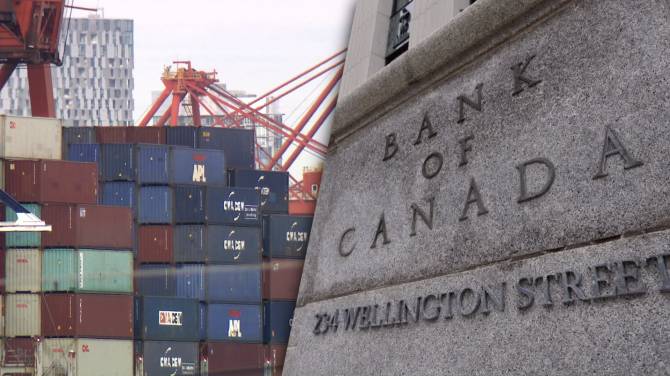Canada looks set to dodge a recession despite ongoing downward pressure from higher interest rates, as stated in Deloitte Canada's economic outlook report. recession Despite the ongoing downward pressure from higher interest rates, Deloitte Canada said in its economic outlook report that Canada seems likely to avoid a recession.
Deloitte stated that despite sticky inflation, rising business insolvencies, and increasing mortgage delinquencies, a number of worrisome trends are still weighing on the economy.
In its report, the firm expressed caution about the near-term outlook against the backdrop of the worrisome trends.
The firm mentioned that Canada appears likely to avoid a recession and is even poised to begin recovering from its current slump in the second half of this year, based on its current trajectory.
To combat high inflation, the Bank of Canada raised the country’s key interest rate from near zero in March 2022 to the current five per cent with a series of hikes.
Inflation has since cooled significantly, and Deloitte says the central bank is poised to start cutting interest rates in June, with most economists expecting cuts to begin in either June or July.
Despite positive signs, Deloitte said Canada’s economy is likely to remain “stuck in neutral” in 2024, particularly in the first half of the year, with real GDP growth coming in at around one per cent this year before reaching 2.9 per cent in 2025.
Deloitte's forecasts are underpinned by robust GDP growth in the U.S., a continued softening of inflationary pressures, cuts from the Bank of Canada, and a steady flow of newcomers to the country, supporting demand.
According to Statistics Canada, Canada’s GDP rose 0.6 per cent in January, with a preliminary estimate of 0.4 per cent growth in February.
The report mentioned that the economic recovery hinges on interest rate cuts, which depend on inflation continuing to moderate.
The report stated, “The good news is that measures to cool inflation have made significant progress.”
The report added, “The factors that are keeping inflation elevated are not likely to reverse in the near term.”
Deloitte noted that the cost of housing is the biggest challenge, as Canadians continue to renew mortgages at higher rates, affecting both homeowners and renters.
The report highlighted that wage pressures are running well above inflation without a corresponding increase in productivity, driving up unit labor costs for businesses and making it difficult to contain inflation.
Deloitte mentioned that the labor market continues to hold up remarkably well, but it predicts that employment gains will slow sharply in 2024.
Deloitte stated that household spending will remain modest over the first half of the year as consumers continue to grapple with the higher cost of living.
The report stated, “Next year should be much better as interest rates come down, the economy picks up, and pent-up demand is unleashed.”
The report notes that business investment is falling at a “worrying pace” and elevated interest rates will likely limit the recovery in that area this year, according to Deloitte.
According to the report, high interest rates are weakening the economy and eroding business confidence, leading to businesses increasingly delaying their investment plans and focusing more on maintenance and repair rather than expansion.
In contrast to Canada, the U.S. economy has managed to stay quite strong despite the impact of interest rate increases. However, the country's central bank is also expected to start reducing rates later in the year.
Deloitte predicts that the U.S. economy's strength will somewhat decrease in the next few months but will still be positive, with actual growth of 2.4 per cent in 2024 and 1.4 per cent in 2025.






